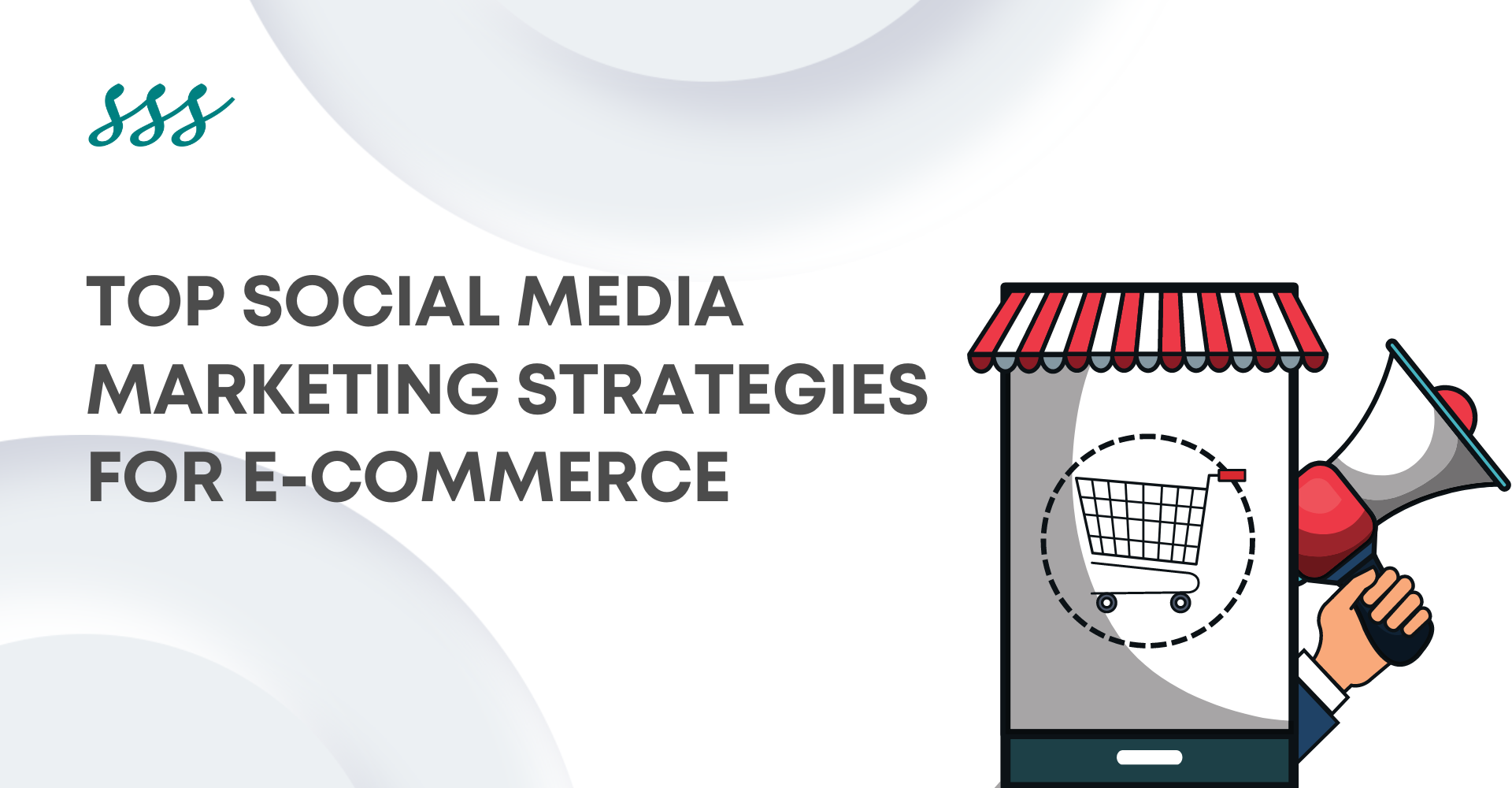
Top Social Media Marketing Strategies for E-commerce
In today’s competitive landscape, mastering social media marketing strategies for e-commerce is essential for unlocking growth and staying ahead of the curve. With billions of users scrolling through various platforms daily, social media has evolved into a bustling marketplace where brands can directly connect with their target audience, build relationships, and ultimately, boost revenue.
However, navigating the realm of social media marketing can be daunting, especially for those new to the game. From understanding algorithms to crafting compelling content, there’s a lot to unpack. But fear not! In this beginner-friendly guide, we’ll demystify the world of social media marketing for e-commerce, providing you with practical tips and strategies to kickstart your journey toward online success.
Whether you’re a small boutique looking to expand your reach or an established online store aiming to enhance your digital presence, this article will equip you with the knowledge and tools needed to harness the full potential of social media for your e-commerce business. So, let’s dive in and discover how you can leverage the power of likes, shares, and retweets to drive sales and elevate your brand to new heights.
Benefits of Having Social Media for Your E-commerce Business
The benefits of leveraging social media platforms for your e-commerce venture are manifold and can significantly impact your bottom line. From expanding your reach to fostering customer engagement and driving sales, the advantages are undeniable.
First and foremost, social media serves as a powerful tool for expanding your reach and increasing brand visibility. With billions of active users across various platforms, these networks offer unparalleled access to a global audience. By strategically targeting your ideal demographic and utilizing features like hashtags and geotagging, you can amplify your brand’s presence and attract potential customers who may have otherwise never discovered your products or services.
Moreover, social media facilitates direct communication and engagement with your audience, fostering a sense of community and trust around your brand. Through regular interaction, such as responding to comments, messages, and inquiries, you can build meaningful relationships with your customers, ultimately leading to increased loyalty and advocacy. Additionally, platforms like Instagram and Pinterest allow you to showcase your products in visually appealing ways, enticing users to explore your offerings and make purchases.
However, social media platforms offer invaluable insights into consumer behavior and preferences through analytics and data-tracking tools. By analyzing metrics such as engagement rates, click-through rates, and conversion rates, you can gain valuable insights into what resonates with your audience and tailor your marketing efforts accordingly. This data-driven approach enables you to optimize your campaigns for maximum effectiveness and ROI.
Additionally, social media provides a cost-effective means of advertising and promoting your e-commerce business. Unlike traditional advertising channels, which often require significant financial investment, platforms like Facebook and Twitter offer targeted advertising options that allow you to reach specific demographics based on factors such as age, location, interests, and purchasing behavior. This level of precision targeting ensures that your marketing efforts are directed towards those most likely to convert, maximizing your return on investment.
How to Use Social Media Marketing for E-commerce Businesses?
In the competitive world of e-commerce, mastering social media marketing is crucial for driving traffic, boosting sales, and fostering brand loyalty. With the right strategies in place, you can harness the power of social media platforms to grow your online business and stand out in the digital marketplace. Here are the top 10 social media marketing strategies tailored specifically for e-commerce:
1. Identify Your Target Audience:
Understanding your ideal customers on a deep level is essential for tailoring your content, messaging, and marketing efforts to resonate with them effectively.
To identify your target audience, start by conducting thorough market research to gather insights into their demographics, interests, preferences, and online behavior. Consider factors such as age, gender, location, income level, occupation, lifestyle, hobbies, and purchasing habits. Analyze existing customer data, conduct surveys, and leverage social media analytics tools to gain valuable insights.
Once you have a clear picture of your target audience, create detailed buyer personas representing different segments of your customer base. These personas should include demographic information, psychographic traits, pain points, goals, and objections. Use these personas as a reference when developing your content strategy, crafting messaging, and selecting the most appropriate social media platforms to reach your audience.
By identifying your target audience upfront, you can tailor your social media marketing efforts to speak directly to their needs, interests, and preferences.
2. Choose the Right Platforms:
It is about emphasizes the importance of focusing your social media marketing efforts on platforms where your target audience is most active. Conduct research to identify which platforms align best with your brand and business objectives. For example, if your target demographic is primarily young adults interested in visual content, platforms like Instagram and TikTok may be ideal. If you’re targeting professionals or B2B clients, LinkedIn might be more suitable. By selecting the right platforms, you can effectively reach your audience, maximize engagement, and drive traffic to your e-commerce store, optimizing your resources for the best possible results.
3. Optimize Your Profiles:
A well-optimized profile serves as your brand’s digital storefront, making a strong first impression on visitors and enticing them to explore further. Start by ensuring that your profile is complete, including all relevant information such as your business name, logo, bio, website link, and contact details. Use high-quality images that showcase your products or services and align with your brand aesthetic. Craft a concise and compelling bio that clearly communicates your brand identity, value proposition, and unique selling points. Additionally, utilize relevant keywords and hashtags to improve discoverability and searchability. By optimizing your profiles, you can increase brand visibility, attract followers, and drive traffic to your e-commerce website, ultimately contributing to your overall marketing success.
4. Create Compelling Content:
Your content should be tailored to showcase your products or services in a visually appealing and authentic manner while also providing value to your audience. Experiment with various content formats, including images, videos, stories, and user-generated content, to keep your followers engaged and interested. Share behind-the-scenes glimpses, product tutorials, customer testimonials, and lifestyle imagery to connect with your audience on a personal level. By consistently delivering compelling content that resonates with your target audience, you can build brand awareness, foster customer loyalty, and drive traffic to your e-commerce store, ultimately leading to increased sales and revenue.
5. Utilize Influencer Marketing:
Influencers have established trust and credibility with their followers, making them powerful advocates for your products or services. When selecting influencers to partner with, prioritize those whose values align with your brand and whose audience demographics match your target market. Collaborate with influencers to create authentic and engaging content that showcases your products in a relatable and compelling way. By leveraging the influencer’s existing audience and social influence, you can increase brand visibility, generate buzz, and drive traffic to your e-commerce store. Additionally, influencer endorsements can enhance brand credibility and trustworthiness, ultimately leading to higher conversion rates and increased sales.
6. Run Targeted Ads:
Social media platforms offer robust advertising tools that allow you to target users based on demographics, interests, behaviors, and more. By defining your target audience and setting precise targeting parameters, you can ensure that your ads are seen by those most likely to be interested in your products or services. Experiment with different ad formats, such as carousel ads, video ads, and sponsored posts, to determine which resonates best with your audience. Allocate your advertising budget strategically, monitoring performance metrics closely to optimize your campaigns for maximum effectiveness. With targeted social media ads, you can increase brand awareness, drive traffic, and generate leads, ultimately leading to higher conversion rates and increased revenue for your e-commerce business.
7. Engage with Your Audience:
Actively respond to comments, messages, and mentions in a timely and authentic manner to show your audience that you value their feedback and engagement. By engaging with your audience, you can build trust, strengthen relationships, and cultivate a sense of community around your brand. Additionally, responding promptly to inquiries and addressing concerns demonstrates your commitment to customer satisfaction, enhancing brand reputation and loyalty. Regular engagement also helps to keep your brand top-of-mind for your audience, increasing the likelihood of repeat purchases and referrals. Overall, proactive engagement on social media can lead to higher levels of brand awareness, customer retention, and ultimately, increased sales for your e-commerce business.
8. Offer Exclusive Deals and Discounts:
By offering exclusive deals, discounts, or giveaways, you can encourage followers to take action, such as making a purchase or sharing your content. Limited-time offers and flash sales create a sense of urgency, prompting followers to act quickly to seize the opportunity. These promotions not only reward your loyal customers but also attract new ones and increase brand visibility as followers share the deals with their networks. By leveraging exclusive offers on social media, you can boost engagement, drive traffic to your e-commerce site, and ultimately increase sales and revenue.
9. Leverage User-Generated Content:
Encourage your audience to share their experiences with your products or services by creating branded hashtags, hosting contests, or featuring customer reviews and testimonials. Reposting user-generated content not only provides social proof of your brand’s quality and popularity but also fosters a sense of community and trust among your followers. Additionally, user-generated content often resonates more strongly with potential customers than branded content, as it comes from real people with genuine experiences. By leveraging user-generated content, you can increase brand authenticity, engagement, and loyalty, ultimately driving traffic and conversions for your e-commerce business.
10. Track and Analyze Performance:
Monitor the performance of your social media marketing efforts using analytics tools provided by each platform. Track key metrics such as engagement, reach, click-through rates, and conversion rates to identify what’s working well and areas for improvement.
Conclusion:
By implementing these top 10 social media marketing strategies for e-commerce, you can strengthen your brand presence, drive traffic to your online store, and ultimately increase sales and revenue. Stay agile and adapt your approach based on the evolving landscape of social media and the changing preferences of your audience. With dedication, creativity, and strategic planning, you can achieve e-commerce success in today’s digital world. If you need help with your social media exposure, we are here with our exclusive social media marketing services. To know more, contact us!


